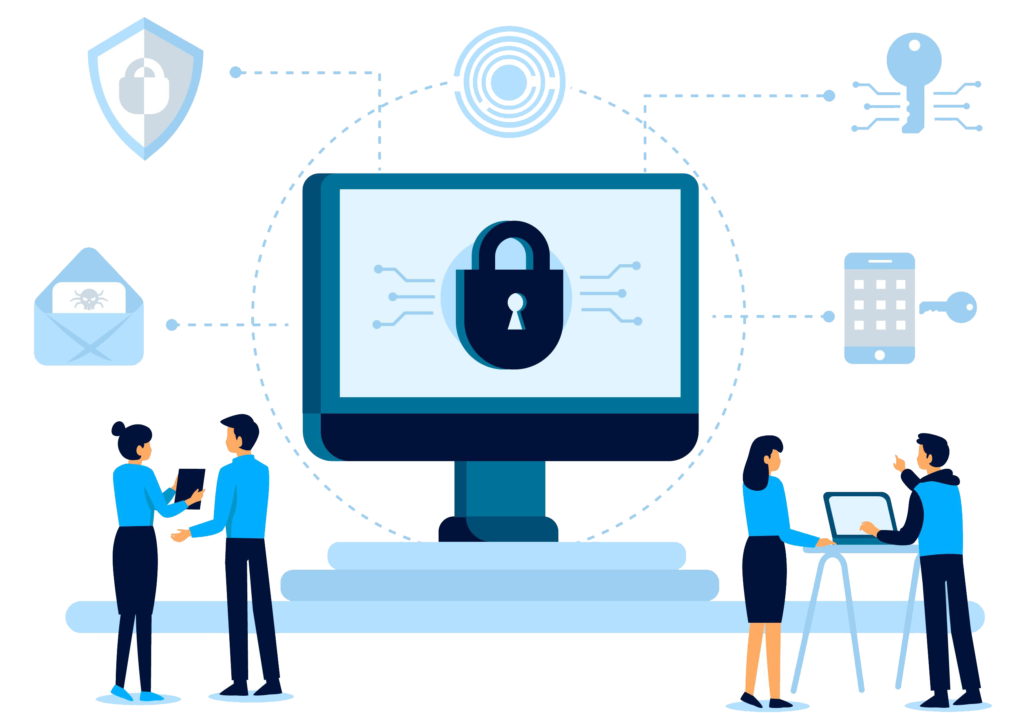
Cyber Security
IT support providers are also equipped to prevent data loss from natural disasters, power outages, and common errors with well-documented disaster recovery plans.
Businesses can’t afford to take chances with their data, and compliance and security certifications make it easier for organizations to trust cloud-computing providers. Providers with cloud security certifications are sure to employ individuals who are qualified and experienced with configuring cloud servers and keeping client data secure.
When it comes to cloud computing, there’s no reason to worry about data being stolen as a result of misplacing storage devices or laptops and mobile phones. Since data is stored on the cloud, the loss of a physical device does not affect the data – though of course it is worth noting that if you lose a device and it contains sensitive data then you could be in trouble with the authorities.
Patch management involves installing and managing patches or code changes on all systems within a network. These patches improve systems, keep them up to date, and fix security vulnerabilities to keep hackers and malware at bay.
Cloud-based solutions allow for patch management with comprehensive scanning identifying missing patches. Deployment is efficient, and you can select a patch management tool that offers reporting capabilities to match your business’ unique requirements. Proactive monitoring and timely solutions with managed IT solutions not only mean data security but also reduced downtime and increased productivity as well.
Implementing cloud-based solutions for your business is certain to bring a higher standard of security that your in-house IT team or a locally managed system is unlikely to achieve.
With hacking techniques becoming more effective every day, your systems and data aren’t necessarily safe with just a combination of a unique login ID and a complicated password.
Multi-factor authentication verifies user identity via more than one verification method from independent credential categories. These verifications combine something that the user knows (password), something that the user has (hard token), and something that the user is (fingerprint).
When it comes to physical security of their data and facilities, small to medium-sized businesses can only do so much to prevent breaches. But cloud computing vendors can employ stronger physical security measures at their facilities to ensure data safety.
